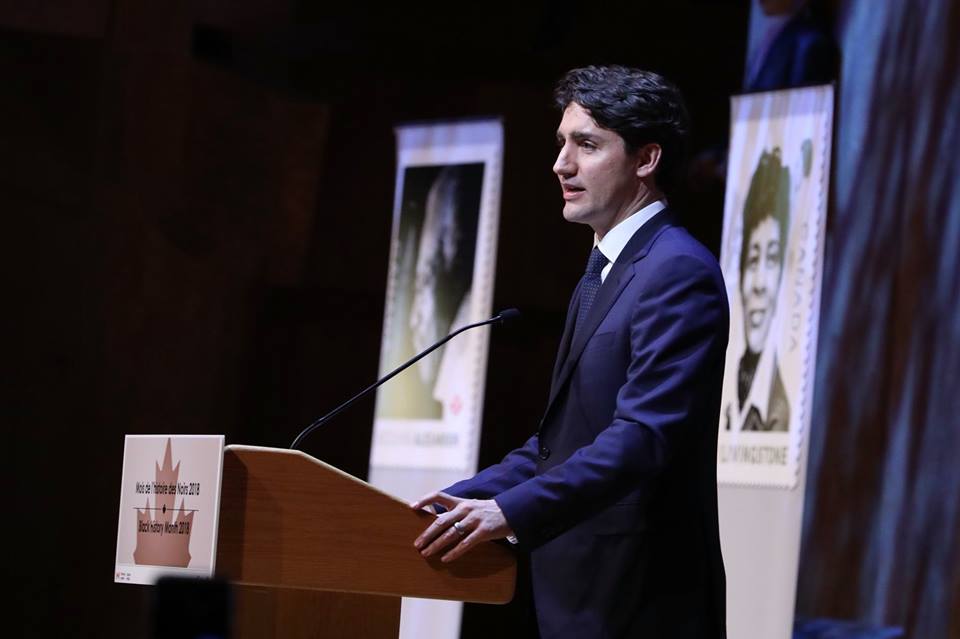
MUMBAI, India — Some of India’s biggest companies say they will invest more than $250 million in Canada, in everything from pulp mills to pharmaceuticals and the IT sector.
Canadian companies, meanwhile, plan to invest $750 million in India.
The news came after Prime Minister Justin Trudeau spent his third morning in India meeting six of the country’s most influential business tycoons, making deals that he says will create more than 5,800 new jobs in Canada.
“This was really a win-win morning, a win-win day for all of us and I’m excited for the opportunities in the Canada-India friendship,” Trudeau said during an armchair conversation with Chanda Kochhar, CEO of the Industrial Credit and Investment Corp. of India, in front of 550 Indian business people.
Trudeau initially said the entire $1 billion was money coming into Canada but his officials later corrected that it was a two-way trade number, with one-quarter coming from India into Canada, and the rest going the other way.
More than half the $750 million Canadian investment in India comes from Toronto’s Brookfield Asset Management, which is spending $480 million to buy a 1.25 million-square foot office complex in Mumbai.
Another $200 million comes from Fairfax India Holdings Corp. of Canada, which acquired a 51 per cent stake in the Catholic Syrian Bank in Kerala, India.
The government of Indian Prime Minister Narendra Modi has made a number of economic reforms in the last few years that have helped open the Indian economy to international investment opportunities. Kochhar said these “huge” structural reforms — including a new goods and services tax to simplify the tax system, a bankruptcy court and more transparency — have had a big impact on making it easier to do business in India.
The investments from India include a new operation in Canada from telecom equipment manufacturer Valiant Communications, a Canadian manufacturing facility to produce natural health products by Clarion Pharmaceutical and an Ontario operation for Vision Controls, which works on automation.
As well, Jubilant Life Sciences will spend $100 million to expand its existing facility in Kirkland, Que., which manufactures medical devices.
Later this week, digital transformation company Tech Mahindra, will announce a new partnership with Canada’s superclusters initiative.
Anand Mahindra, chairman of the Mahindra Group, said he had recently joined the Asia Business Leaders Advisory Council but he said he can’t find anything to “advise” Trudeau about other than “do more of the same.”
“I think the rest of the world is learning about leadership from you,” Mahindra told Trudeau in a brief, public portion of their meeting Tuesday.
“So, please continue to do what you’re doing. With good leadership, business follows and as you learn from my team we have big plans for Canada.”
Kumar Birla, chairman of the Indian conglomerate Aditya Birla Group and, according to Forbes, the country’s eighth-wealthiest person, told Trudeau he finds both the federal and provincial governments in Canada to be very friendly for business.
“We are very happy investors,” he said at the start of his meeting with Trudeau. “I think just the ease of doing business, the business friendliness of the Canadian government across the country I think is something that is a true delight for an investor. Someone who’s tasted that will always want to come back for more.”
The Birla Group — which already owns pulp mills in Ontario and New Brunswick— has plans to expand in three areas in Canada, in fibre, carbon black and aluminum products.
The investment deals are the first tangible delivery from Trudeau’s trip and come despite the fact Canada and India trade is not growing as quickly as some had hoped. In 2012, former Prime Minister Stephen Harper and the Indian government set a goal to reach $15 billion in trade between the two countries by 2015.
In 2016, the latest year for which statistics are available, it was at $8.4 billion. While that was double what it was in 2010, it was far shy of the $15 billion goal.
Kasi Rao, chair of the Canada-India Business Council, which hosted the Trudeau armchair chat Tuesday, said the slow growth between Canada and India comes from a lethargy on Canada’s part and a lack of knowledge of Canada within India.
However, he said Canadians seem increasingly aware of the rise of Asia and India’s importance and the Canada brand in India is growing. Rao said to prove that one need only look at the fact more than 550 people signed up to attend the Tuesday discussion with Trudeau and Kochhar.
“That would have been a hard sell a few years ago,” said Rao.
Trudeau is also trying to push some of his domestic political priorities in India, including women’s empowerment and human rights. To that end he hosted a round table with women business leaders on Tuesday, saying he wanted hear about their experiences and challenges.